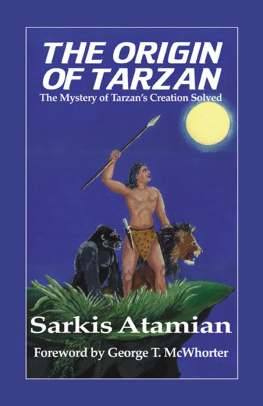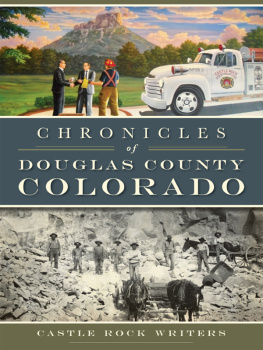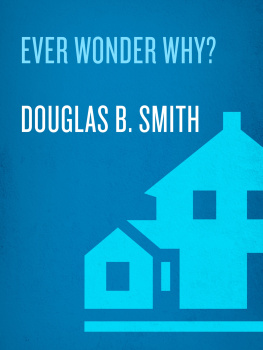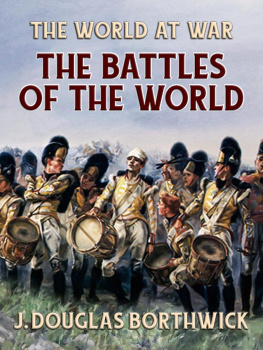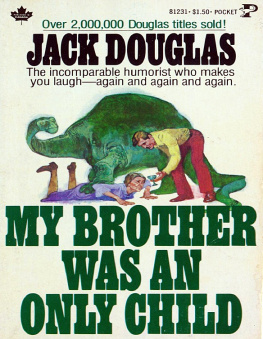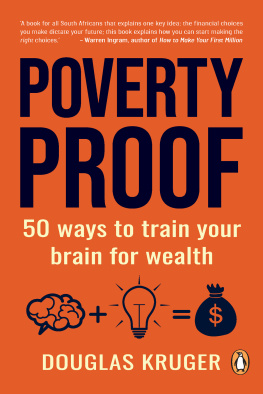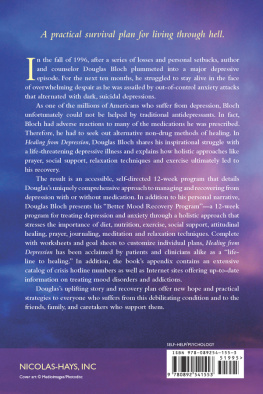ISBN 978-1-59433-033-9
eBook ISBN 978-1-59433-114-5
Library of Congress Catalog Card Number: 2005908077
Copyright 2005 by Sarkis Atamian
First Edition
All rights reserved, including the right of reproduction in any form, or by any mechanical or electronic means including photocopying or recording, or by any information storage or retrieval system, in whole or in part in any form, and in any case not without the written permission of the author and publisher.
Manufactured in the United States of America.
Foreword
by Alison Atamian
Four years ago, Sarkis suffered life-threatening injuries in a car accident. After a three-month stay in the hospital, he returned home, where he exerted himself in a determined effort to regain his strength. During this period, Sarkis friend and publisher, Evan Swensen, encouraged him to begin writing Douglas Avenue. Struggling with pain and fatigue, Sarkis often found it discouraging to work on his manuscript. However, he persevered and his stories of Douglas Avenue, a book for which his boyhood chums were an inspiration, provide a glimpse into the lives of Armenian children, growing up in families that struggled to overcome adversity and prosper, buoyed by love for one another and a sense of hope.
As a boy, Sarkis often heard his mother say of someone, He has dropped something in his suitcase and is carrying it around. She meant by this that someone had an idea or story which they couldn't resist repeatedly sharing with anyone who would listen. Well, all of us, no doubt, cherish the memory of some experience we are eager to repeatedly pull out, dust off and tell. Perhaps a story is told with tenderness or humor, and punctuated with laughter, and yet another story we may remember with grief or regret, as our eyes well with tears. Sarkis was a wonderful storyteller and he could bring to life a moment from the past, eliciting laughter or tears from his audience, as he took captive each listener's imagination.
Do we not share our stories of joyful memories of success, survival, and of our celebrations of life with greater appreciation as time passes? If this is so, it may be that we perceive our experiences as having been significant, extraordinary or wondrous in a sense we did not fully appreciate when we first lived them. Sometimes we recognize belatedly that certain events were pivotal in the unfolding history of our lives. Our personal stories of tragedy, or poverty or of other anguish, may be understood in a new light, as having been instrumental in bringing families closer together, or having strengthened the bonds of friendship, or having taught lessons in lifeof perseverance, humility, commitment, or self-reliance. Sarkis brings to life just such stories as he writes about the trials and triumphs of the Stepanian family of Douglas Avenue. Hope, faith and love flourish in this immigrant Armenian family's life. Mariam Stepanian, expresses this sense of hope when she proclaims, This is truly a land of milk and honey. Thank God, our children have a promising future.
In the chapter, Picnic Armenian Style, the Stepanian family joins others in the community for a Sunday afternoon picnic. It has been organized by those who survived the massacres from the Pavlu region in the old country. Everyone enjoys music, dancing, shish kebob, and many speeches, until daylight wanes. It has been a typical Sunday of freedom from the worries and anxieties about the coming week, an opportunity to regain their strength to fight for life In conclusion, Sarkis wrote, After all, these were the people who had survived the last attempt to wipe them off the earth's surface. The more their enemies or adversity threatened to wipe them out, the harder they lived to survivetoday the children and grandchildren of that earlier generation thrive and take with them into the future the wealth of their Armenian inheritance.
In our collective storytelling, we pass on the values, traditions and history of a people. In an article written years ago, Sarkis reminisced about his participation as a young adult in the Armenian Youth Federation Olympics, saying, What gave us a sense of purpose, pride, self-respect, and gratitude were the values and heritage of our people. These found their articulation for young minds in athletic events focused on the AYF Olympics. Later in the same article, Sarkis declared, I know who I am and where I am going, no matter where this world claims me. I have no identity crisis.
Sarkis would often remind me that when you leave this life you take only your memories with you. He passed away on December 27, 2005, just weeks after approving the final draft for his book. In Douglas Avenue, Sarkis shares his collection of memories, about what it was like for youngsters of his generation to grow up in the Armenian community of Douglas Avenue. No doubt his contemporaries will recall their own special memories of childhood as they read the book, and certainly for the rest of us, Armenian or otherwise, we will take our own trip into the past.
The phrase, Once there was and there was not serves as the introduction to many an Armenian tale. It is the equivalent of beginning a story with, Once upon a time. So I invite you to begin the journey back in time to once there was and there was not, on Douglas Avenue, an immigrant Armenian family, the Stepanians, whose children grew up during the Great Depression.
Dearest Sarkis, my beloved husband, may God illumine your soul.
Alison Atamian
Wasilla, Alaska
July 12, 2006
Introduction
Providence, Rhode Island, was founded about 1636 by Roger Williams, a victim of religious persecution. Ever since, it has become a haven for successive arrivals, hoping to establish a better life for themselves and their families.
The earliest immigrants were English, French, Scandinavians, Germans, and other western Europeans. During and after World War I, the nation opened its doors to the Irish, Poles, Russians, Lithuanians, Jews, Greeks, Italians and the rest of the huddled masses which included, last but not least, the Armenians. Many of these people gravitated to Providence, Rhode Island.
Having suffered the first and worst genocide of the 20th century at the hands of the Ottoman Turks, Armenians arrived not for economic advantage but for sheer survival as remnants of a devastated nation and culture. America was the kindest place to be. The first substantial settlements were in New England, especially in Providence, Rhode Island.
These newcomers found that New England winters can be bitterly cold, and discovered that summers are hot and humid but are often delightfully cooled by the offshore breezes from Narraganset Bay. They marveled at the beauty of fall, when the foliage of hardwood trees turned orange, yellow, gold, and brown, creating a magical image, as though van Gogh had just been there with his palette, mixing his fantastic colors.
By the early 1920s, Providence had long since become an important manufacturing center of industrial equipment, machine tooling, jewelry, and sundry things. A variety of fish and other seafood was harvested from an Atlantic cornucopia. The immigrants sought employment in this environment.



